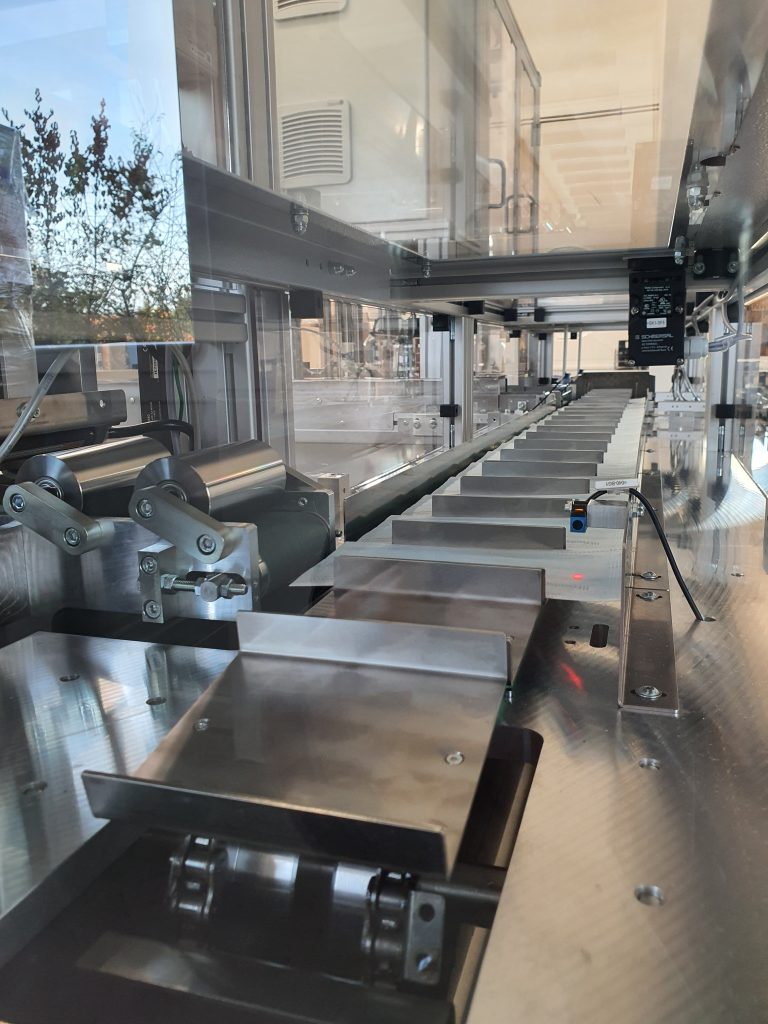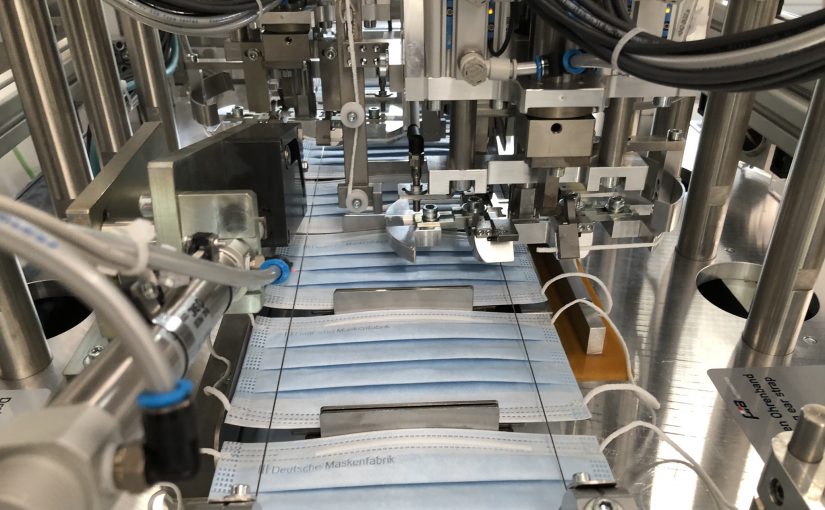The first part of this interview with Christian Herzog was more about the topic COVID19 itself, here in the 2nd part we shed light on the topic of the foundation.
Christian, you spent many years in leading positions at large IT companies. What made you decide to start your own company?
There were several reasons that came together, so that from one idea the German Mask Factory was launched:
- The trigger was certainly that we privately in the middle of the 1st lockdown ourselves faced with the problem of getting masks and disinfectant and that was only available at horrendous prices and long delivery times. We then briefly considered importing some ourselves through a contact in Asia. However, we then considered whether and how we could produce masks ourselves in Germany, also in order to reduce the supply dependencies we had experienced ourselves. So the idea was born.
- We then did the math and tried to look at it from all sides, as far as that is possible in such an unpredictable and volatile market environment. We saw a great and sustainable opportunity in it, if we position ourselves correctly.
- It also gave us a bit of a boost that it was something "meaningful" and we definitely see a point in doing something that is important and good for society.
- And in the end, at least for me, the time was simply ripe to do something new. I'm sure you've experienced this too ... I wasn't dissatisfied with my previous job and it was also fun most of the time. But it lacked a bit of fulfillment. For me, what I do has to have meaning, and lasting meaning. If you already invest a lot of time of your life and heart blood in a job, then it should also be something you believe in and stand up for. Something you burn for and can develop passion for. And I think that was one of the main triggers. On the one hand, to see something that makes sense and that I can get excited about, and on the other hand, to have something where, if you're honest, the air was a little bit out.

You reacted to the pandemic with your foundation and acted very quickly - how much planning and how much risk was involved in your thought processes?
Yes, that happened quite quickly. We made the decision that we wanted to start in early April 2020. Then we had about 2 months to plan, to clarify issues such as financing, location, plant, material, our own time, certification, etc.. Then at the beginning of June we sat with the notary and incorporated the company and then in September we already started production. So in less than 6 months we have set up a medical device manufacturer, created 120 pages of technical documentation and a QM system, found a partner who can reliably supply us with good nonwoven material, and set up a production facility.
With a roadmap like this, I think it's clear - and time was really of the essence here - that you can't deal with the risks every day. At the beginning, we thought about what could go wrong and defined the maximum financial framework that we were prepared to invest. And we set ourselves a timeline by which we wanted to have achieved certain things, or where we wanted to lay our cards on the table again.
Our plan is to manage as far as possible without outside capital in the first phase and to ensure that the company is self-supporting from the outset. This means that we invest cautiously and from the capital that we generate. This is simply because the market in which we are currently operating is very difficult to plan and is strongly driven by the pandemic and political decisions. This means that we are constantly adjusting our plan and making decisions at short notice. For example, we had planned to produce special smaller children's masks and had also pre-planned this with the manufacturer of the production plant, but postponed the whole thing for the time being because there is currently no market for us.

What were the biggest hurdles in the founding process?
There are always hurdles ... which ones are the biggest is hard to say. One hurdle that many start-ups have to deal with is awareness. At the beginning, we focused a lot on local marketing in the region and, for example, organized a fundraising campaign for schools right at the start of the school year. And we get great feedback from almost all of our customers. Those who know us and have bought our masks once will stay with us and buy again. In other words, our strategy of having a high-quality product that you can trust is working. But in terms of Germany as a whole, we are simply not known enough. We still lack the reach and presence.
I think in general, things happen every day at every startup that weren't planned that way. Good and bad. And it's important to just keep going, to solve the problems when they come, to take the opportunities when they are there, not to give up, but to just keep going and not lose sight of the big goal, the long-term plan.
The business has taken off and you have proven that the plan is basically working. But I don't think this story is over yet. At what point would growth capital make sense and what would you use it for?
I think that growth capital could make sense for us very soon. At the latest when the pandemic situation returns to normal somewhat towards the summer, the market will also change again and then we will have to invest in two areas.
First and foremost, in our brand, marketing and sales activities. We absolutely need more reach and awareness. Ultimately, our product and its better features distinguish us from the many competitors, especially Asian ones, who sell purely on price. To achieve this, it is important to be able to explain the difference and to create an awareness of good quality in the market. I like to compare this with the organic market ... not everyone cares about organic products in the food sector. But there is a growing percentage of the population that cares about sustainable agriculture and species-appropriate, organic animal husbandry and values chemical-free food. Today, for many, a mask is simply still a mask. And our challenge is to create awareness and understanding among our potential customers that there are significant differences here and what the benefits are.
And beyond that, we need more production capacity, which ties up capital but also enables us to implement our innovative ideas that are currently still in the drawer. Both in the direction of further automation of production and with regard to special product innovations.
